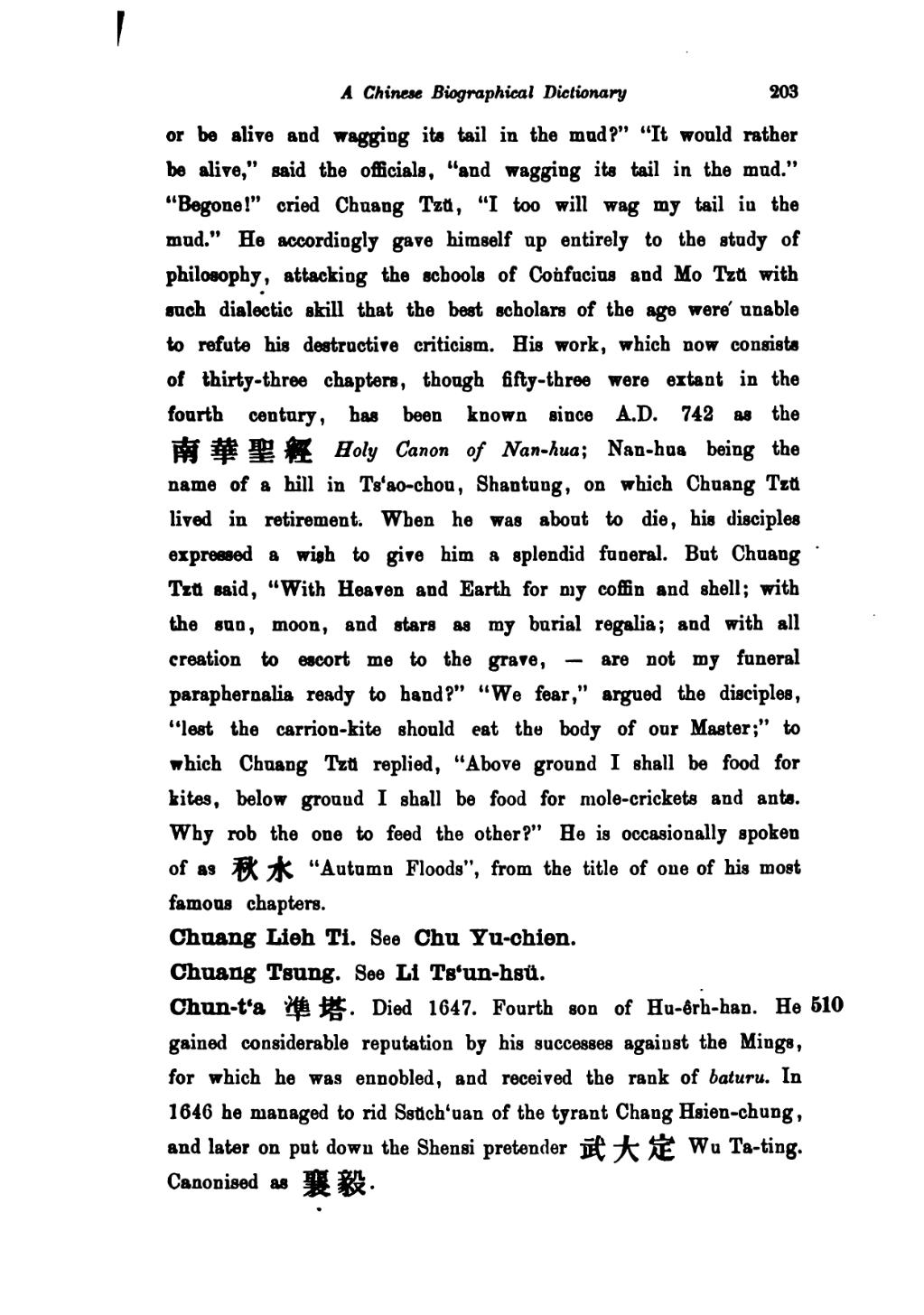or be alive and wagging its tail in the mad?""It would rather be alive," said the officials, "and wagging its tail in the mud." Begone!" cried Chnang Tzti, I too will wag my tail in the mad." He accordingly gave himself ap entirely to the study of philosophy, attacking the schools of Gohfacios and Mo Tzti with sach dialectic skill that the best scholars of the age were' unable to refute his destractive criticism. His work, which now consists of thirty-three chapters, though fifty-three were extant in the fourth century, has been known since A.D. 742 as the 南華聖經 Holy Cannon of Nan-hua; Nan-hua being the name of a hill in Ts'ao-chou, Shantung, on which Chuang Tzti lived in retirement; When he was about to die, his disciples expressed a wish to give him a splendid funeral. But Chuang Tzü said, "With Heaven and Earth for my coffin and shell; with the sun, moon, and stars as my burial regalia; and with all creation to escort me to the grave, — are not my funeral paraphernalia ready to hand?" "We fear," argued the disciples, "lest the carrion-kite should eat the body of our Master;" to which Chuang Tzti replied, "Above ground I shall be food for kites, below ground I shall be food for mole-crickets and ants. Why rob the one to feed the other?" He is occasionally spoken of as 秋水 "Autumn Floods", from the title of one of his most famous chapters.
Chuang Lieh Ti. See Chu Yu-chien.
Chuang Tsung. See Li Ts'un-hstl.
510 Chun-t'a 準塔. Died 1647. Fourth son of Hu-6rh-han. He gained considerable reputation by his successes against the Mings, for which he was ennobled, and received the rank of baturu. In 1646 he managed to rid Sstich'uan of the tyrant Chang Hsien-chung, and later on put down the Shensi pretender 武大定 Wu Ta-ting. Canonised as 襄毅.
